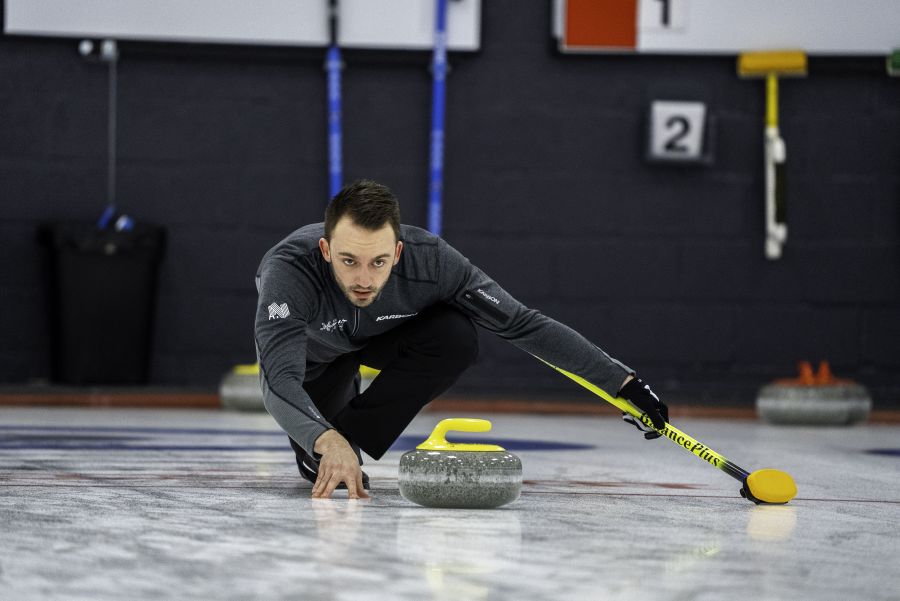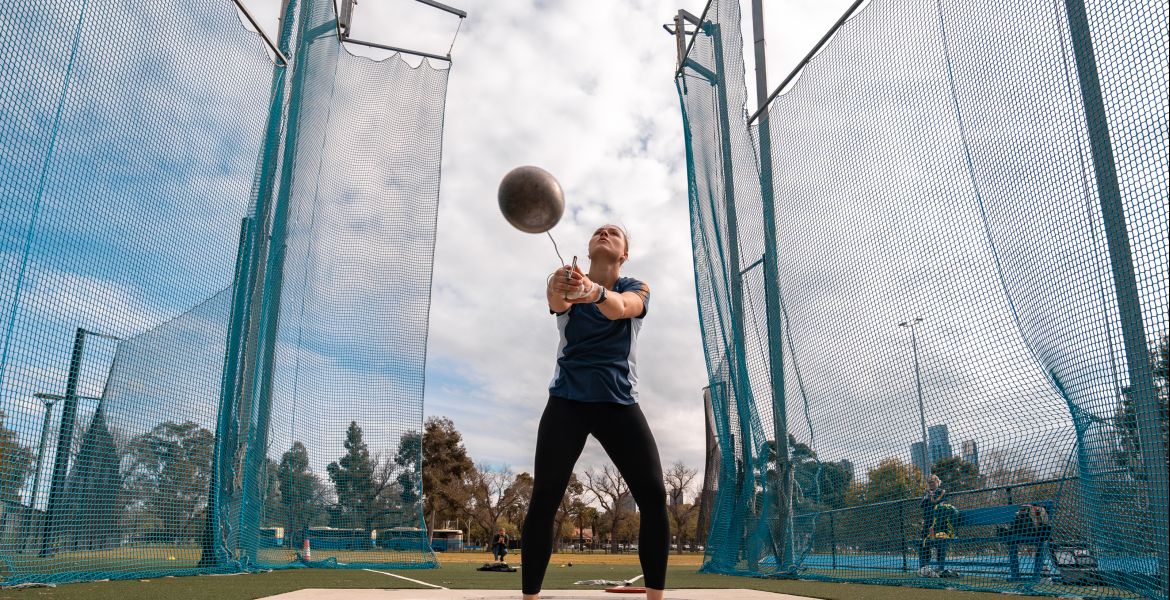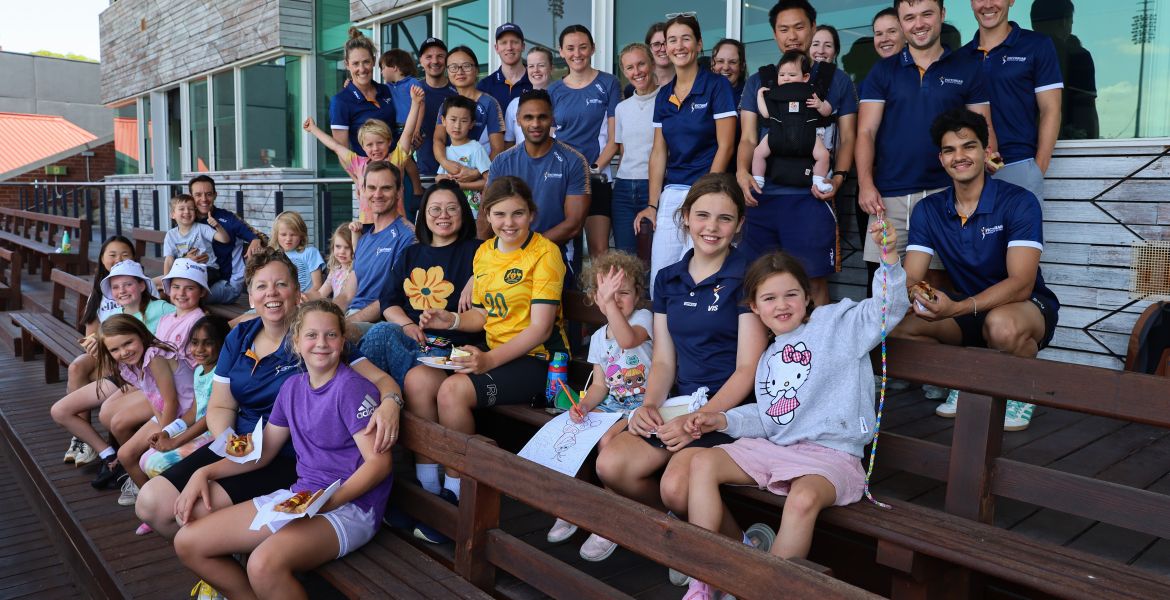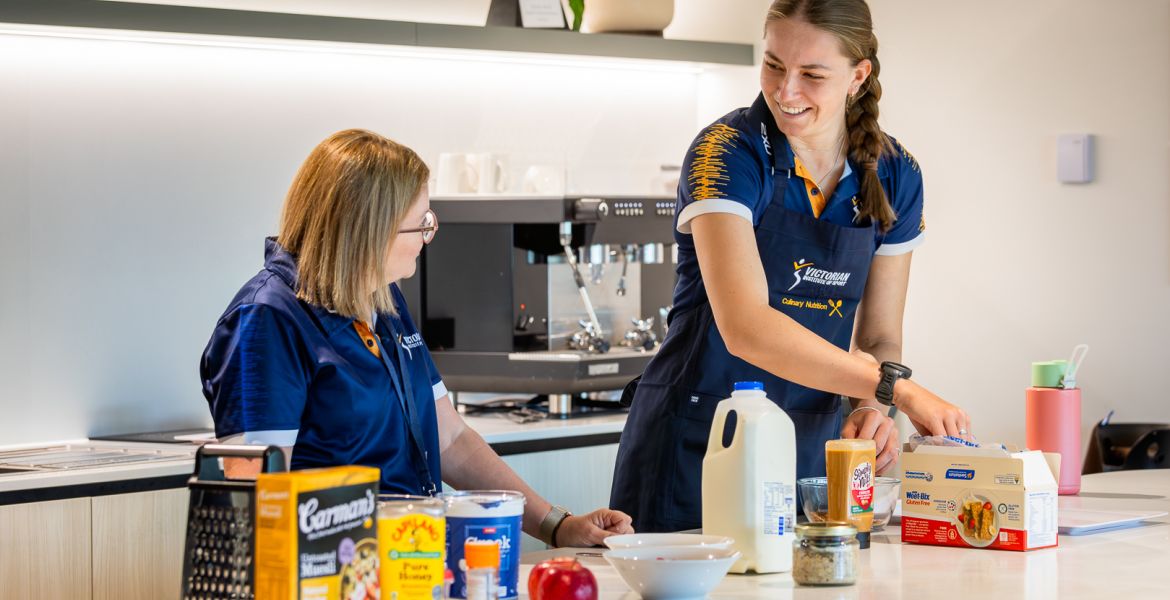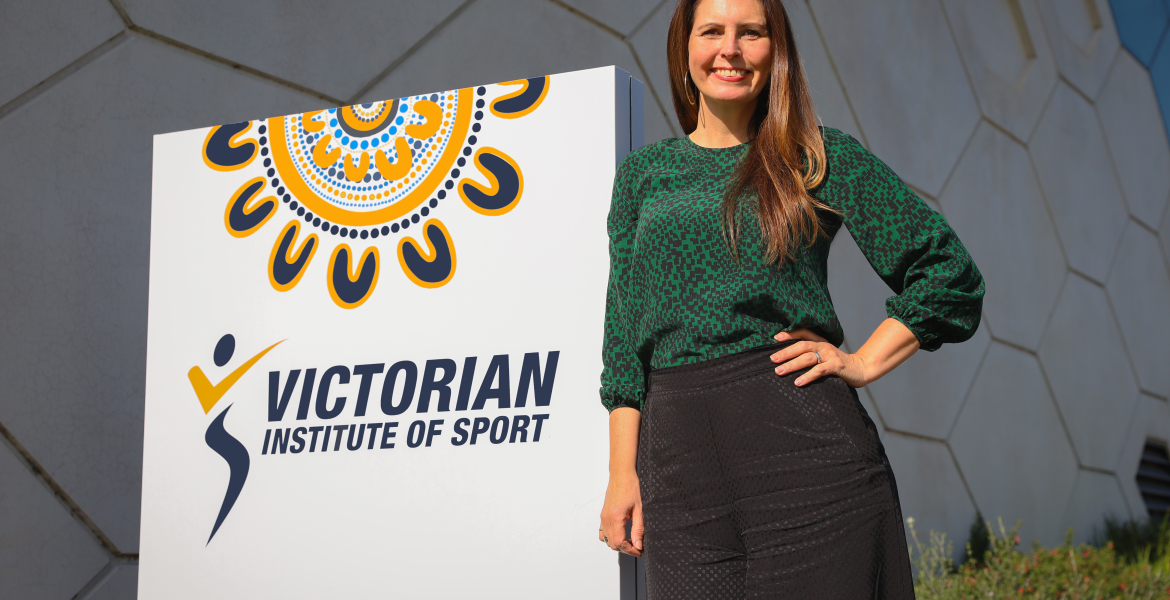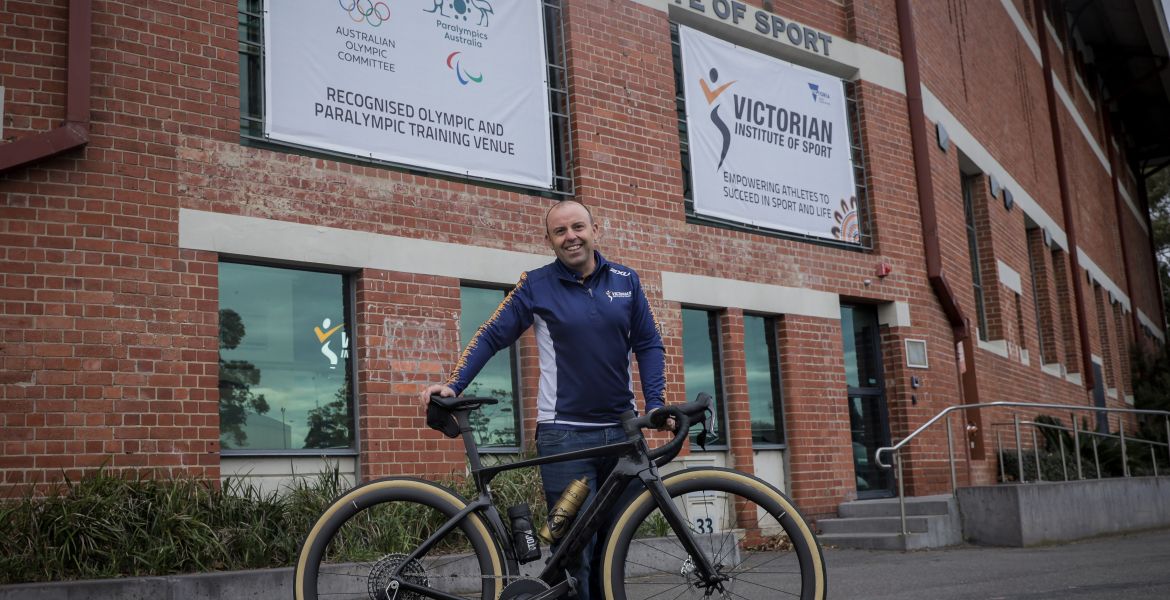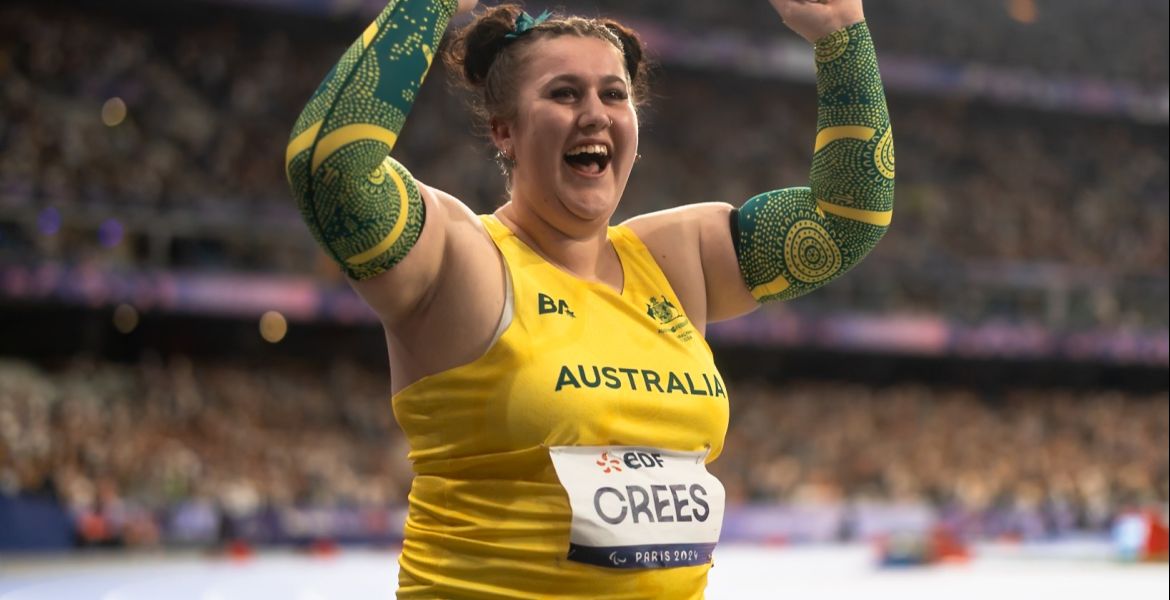28 April 2025
The World Championships is the biggest competition of the year for the Australian team as a top result can secure them a spot at next year’s 2026 Olympic Games in Milano Cortina.
“We have got to be top 10 in the world to qualify for the Olympics Games, so it is quite a small bracket to qualify,” Hewitt said.
The team has had a strong season so far being ranked second in the world earlier this year and winning six golds and making eight podium finishes across the season.
In 2022 the pair made history when they became the first ever Australian curling team (in any curling discipline) to qualify for the Winter Olympics.
It comes as no surprise that being an Australian curler comes with it’s difficulties. With no dedicated training facility with appropriate curling ice in the country, they spend most of their year’s living and training overseas.
Hewitt is based out of Canada during the northern hemisphere winter, where he currently works for the University of Alberta conducting research largely around heart conditions.
“I do my interval training still at home during northern hemisphere summer, when I’m back in Australia,” Hewitt said in an interview with ABC earlier this year.
“We only get to train once a week on the ice which is difficult for a national team, especially when we are playing against teams that train on the ice more than once a day. The rest of the time we train in the gym or practice our sweeping technique or spend numerous hours working on strategy and game analysis,” Hewitt said.
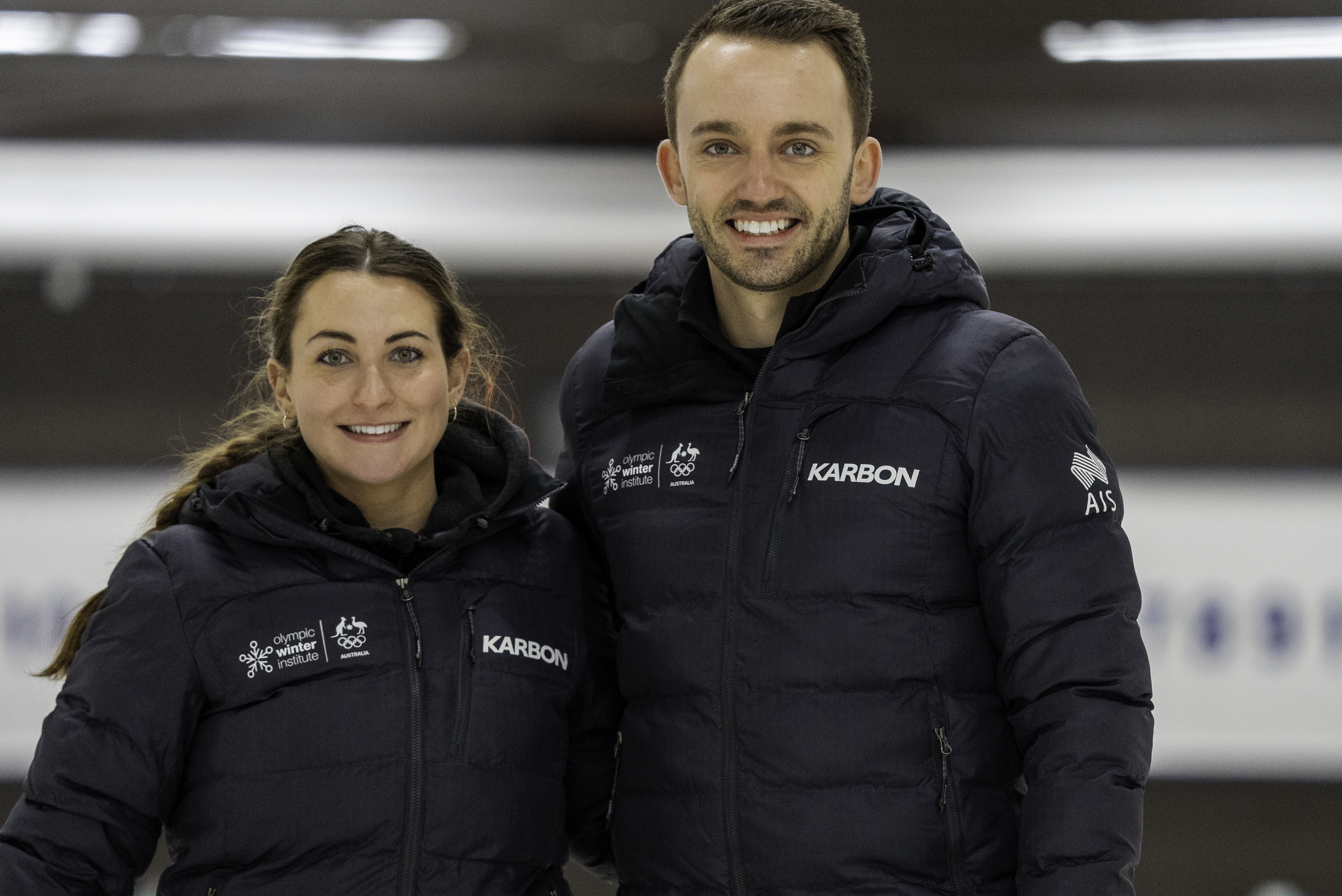
Photo: Tahli Gill and Dean Hewitt (credit: Chris Hocking, OWIA)
When he first came on VIS scholarship the pair did not have a coach. Together with the VIS, they were looking at how the institute could help them improve their performance.
Hewitt and Gill were doing all their data collection and game analysis themselves, and presented an 8-page document to the VIS called “What is needed from a sport scientist”.
Enter VIS Performance Scientist Milli Bilson.
Bilson had just commenced at the VIS and one of her first projects was to set up a streamlined process for the team.
“Dean and Tahli would collect and analyse the data themselves. I worked on creating a bespoke solution to simplify and streamline that process and our VIS Data Intelligence Manager, Demis Maslow, created dashboards to present the analysis,” Bilson said.
“They now have a head coach who is able to collect data during their games and insert this directly into Demis’ dashboard. I then collect the game footage and cut and tag specific game instance in the film,”
“All of this has been created online, so they can access it no matter where they are in the world as they are overseas for 8-10 months of the year,” Bilson said.
Bilson is used to working online with Hewitt but next month she finally gets a chance to watch the pair in action.
“I’m very excited to be able to go watch them train and compete in person as I haven’t been able to do that for the last two years,” Bilson said.
“It will be very beneficial to be able to see the work that Demis and I created being used and if it is the most efficient version that it can be. We want to make sure that we are preparing the team in the best way possible over the coming months in the lead into the Winter Olympics.”
The VIS is an integral part of the support for Hewitt’s campaign to become a dual Olympian in 2026, working closely with a range of VIS performance services.
“I want to thank everyone at the VIS for all of your support over the years. Especially this last year. Having a full time coach now to support us is phenomenal alongside all of our strength and conditioning, nutrition, sport psychology and of course sport science, which has been building up and takes us to the next level,” Hewitt says.
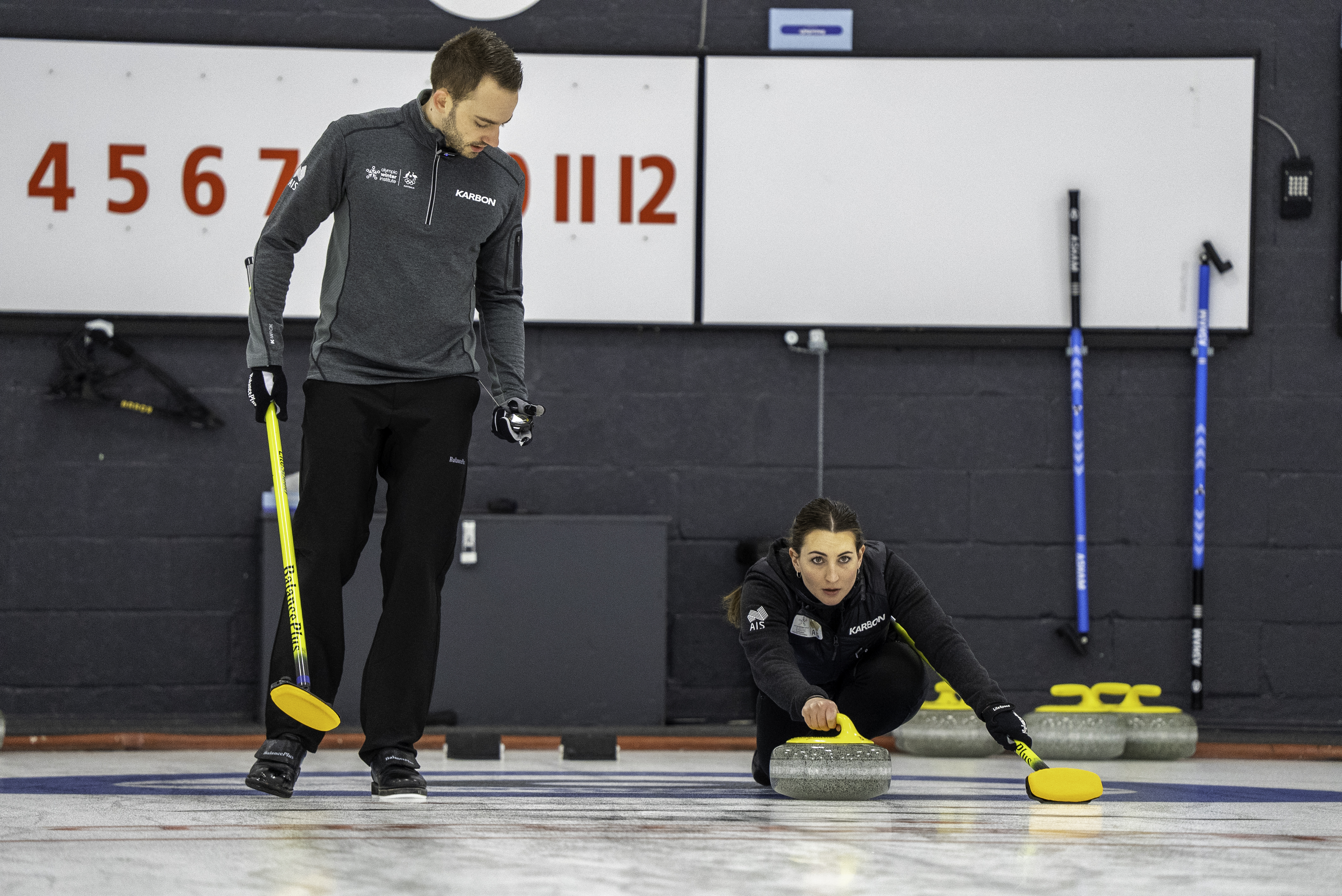
Photo: Hewitt and Gill at training (credit: Chris Hocking, OWIA)
2025 World Mixed Team Curling Championships and Olympic Qualification
Hewitt and Gill have had a sensational start to the 2025 World Championships with three wins from their first four games (as of 29 April 2025). They are currently leading group B and have five games remaining in the round robin before hopefully qualifying for finals starting on Friday 2 May.
To qualify for the 2026 Milano Cortina Olympics, Hewitt and Gill have to be ranked in the top eight of the World Mixed Curling rankings after the World Championships.
Italy, being the host country, has automatic qualification to the Games. This means if Italy do not rank within the top eight, then only the top seven other National Olympic Commitee teams will qualify, to allow a place for Italy.
The rankings are made up from points at this year’s World Championships and last year’s event.
If Hewitt and Gill fall outside of the top eight (or seven, pending Italy) after the 2025 World Mixed Team Curling Championships, they will get another chance to secure one of the two final spots at the Olympic Qualification event in December.
By Camilla Blands
Victorian Institute of Sport

